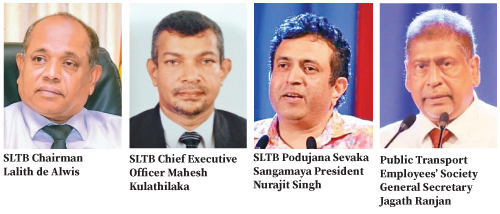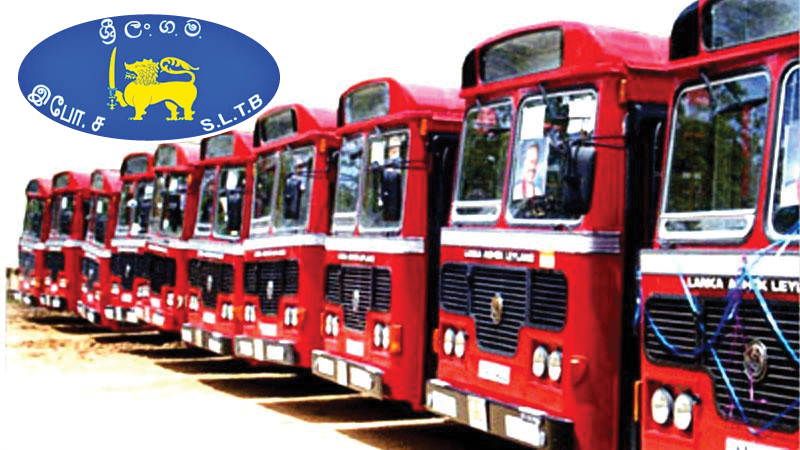After 67 years, the Sri Lanka Transport Board (SLTB) has reached a momentous milestone with the introduction of a new Service Constitution. This significant transformation comes after years of persistent efforts. Minister of Transport, Highways, and Mass Media Dr. Bandula Gunawardena played a pivotal role in spearheading this achievement, heralding a new era for the SLTB.
The new Service Constitution signifies the end of an era where appointments and promotions were influenced by political affiliations. It marks the beginning of an era where positions and promotions are strictly based on formal and legal criteria with performance, qualifications and efficiency being considered. Recently, the SLTB held a ceremony at Temple Trees to honour and promote its employees in accordance with the new service constitution.
Originally established as the Ceylon Transport Board in 1958, the SLTB initially managed recruitments and promotions through internal circulars. Over time, the institution underwent structural changes, and these processes were later guided by Circular 30/2006, which standardised salary frameworks across Government-affiliated bodies, significantly altering recruitment methods and salary structures within the SLTB.
Government policies
 On March 17, 2017, the SLTB aligned its employee roster with Government policies, reducing depots from 107 to 59 and confirming 24,886 positions. Subsequently, recognising operational deficiencies, a Voluntary Retirement Scheme (VRS) was implemented, leading to the retirement of around 3,000 employees. A study by the Kshama Institute has indicated the need for 28,500 employees to effectively manage SLTB operations, an ongoing challenge since 2017.
On March 17, 2017, the SLTB aligned its employee roster with Government policies, reducing depots from 107 to 59 and confirming 24,886 positions. Subsequently, recognising operational deficiencies, a Voluntary Retirement Scheme (VRS) was implemented, leading to the retirement of around 3,000 employees. A study by the Kshama Institute has indicated the need for 28,500 employees to effectively manage SLTB operations, an ongoing challenge since 2017.
In 2019, recruitment processes aligned with primary services, although a formal staff recruitment and promotion system was absent until recently. Responding to trade union demands, the SLTB management introduced the Management Services Department wage system amidst strikes and discussions surrounding staff salary concerns from 2020 onward.
Despite efforts, ongoing discussions continued to address staffing issues. In 2022, the Department of Management Services implemented a graded salary system after sending recommendations, with subsequent discussions culminating in a recruitment process approved by a high-powered committee on February 14, 2024.
Qualified persons were recruited based on Management Services Department recommendations, and all staff officers have been placed in their roles accordingly.
A committee led by the Prime Minister is tasked with resolving the increased employee numbers, and prioritising seniority in the absorption process.
SLTB Chairman Lalith de Alwis said that recruitment must adhere to service requirements rather than political influence, a stance reinforced amidst legal challenges to promotions made against 2017 pay scale instructions.
“We have consistently presented our case. Employees were absorbed in line with the Cabinet guidelines. Past recruitment practices, influenced by political factors, led to allegations of unqualified appointments. It is crucial that future recruitments are transparent and fair, with the potential of Court scrutiny,” he said.
“A new, unprecedented promotion and recruitment system began in February 2022, ensuring no future appointments of unqualified persons, marking a historic milestone,” he added.
Ongoing discussions
President of SLTB Podujana Sevaka Sangamaya Nurajit Singh said, “Since its inception in 1958, the SLTB operated without a formal Department of Management Services recruitment and promotion procedure until the 2017 Circular 30/2006. Formally adopted on January 10, 2018, this system underwent gradual implementation through ongoing discussions.”
Minister Dr. Bandula Gunawardena’s leadership ensured employee integration into the new Service Constitution on June 6, 2024, aiming to eliminate historical political pressures in recruitment and promotions.
“With the approved recruitment procedure in the new Service Constitution, future appointments and promotions will strictly adhere to these guidelines, regulating appointments, promotions, and administrative matters,” said a spokesman for the professional associations involved in drafting the Service Constitution.
“Operational since 1958, the SLTB operated without a Department of Management Services approved recruitment and promotion procedure, with board-established methods remaining unchanged over time, encompassing positions from the lowest to CEO levels,” he added.
“Despite political shifts altering recruitment practices, all 26,014 SLTB positions under the new Service Constitution have been filled, although only 24,886 were approved under the previous method,” SLTB Chairman Alwis said.
“Operating with 24,886 employees in the future is necessary, marking a significant change for the SLTB. We welcome this unprecedented transformation, aiming for operational excellence and merit-based recruitment advocated by our eight trade unions since 2017,” said General Secretary of the Public Transport Employees’ Society, Jagath Ranjan.









